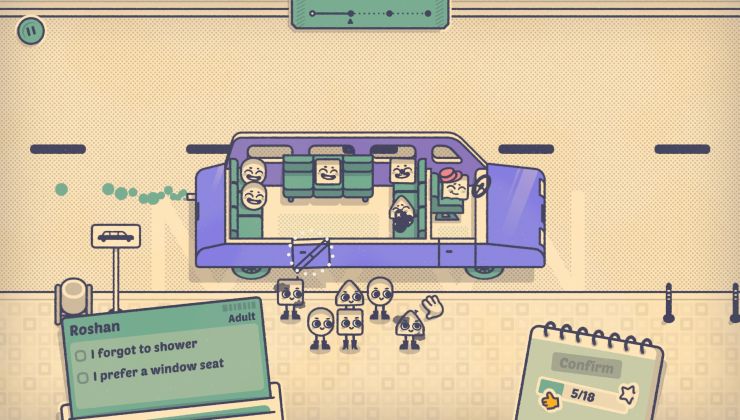KDE developer Nate Graham, who is known for writing the 'This week in KDE" blog posts keeping us up to speed on all the latest changes has a fresh update about plans for taking over the world, and Graham has some interesting things to say.
There's certainly no shortage of desktop environments on Linux and a number of ways to build software, each with their own goal and way of doing things. It's both a strength for choice and a reported weakness with so much. It's always interesting to read the point of view from developers whose work we rely on so much in the FOSS community. Especially when Graham came from a background in working with Apple, while now a KDE developer.
Here, it wasn't quite what I expected to read. The post goes over talking about the market leaders like Windows and Android, noting neither was the first to come to market but they've successfully captured the biggest slices. Noting that "Neither is picky about what kind of software you run on them or write for them, so they are used on a wide range of devices by lots of different people. Both work with others in adjacent industries, rather than taking a 'my way or the highway' approach. They are flexible."
The flexibility, Graham thinks, is the key to success.
Comparing KDE to Apple, they're clearly very different in how they do things explaining that "we’ve always dreamed of a broad scope and being useful for everyone" on why the Plasma desktop is so flexible and why "the Steam Deck handheld gaming console, PinePhone smartphone, and JingPad A1 tablet are built on top of KDE technology".
Some interesting words aimed at two other big names in the Linux space too, with Graham's post mentioning "So I think ultimately we will become the Windows or Android of the Free Open-Source Software world, with projects like GNOME and ElementaryOS competing to be the Apple of FOSS". You could easily take that as putting them in the firing line but it's more positive than that as Graham continues "I think there will absolutely be room for projects like theirs; in fact I think it’s highly likely that they’ll offer a better user experience than we do for people who fit within the usage paradigms they focus on–just like Apple does".
It's part of why I ended up moving from GNOME to KDE myself, that flexibility of setting it all up how I want it to be, not how designers think it should be. I cannot see myself moving away from Plasma as my own desktop environment on Linux any time soon. Looks good, works well and doesn't get in the way of gaming.
What are your thoughts? Will KDE and Plasma become the biggest players? Going by our own stats from users, Plasma is currently on top but GNOME is not far behind at all.
People usually like / dislike user interfaces if they don't act in logical ways.
I'd say it's even more important what people are used to. People using Windows for many years wouldn't find it illogical at all that for stopping your computer, you first press "start".
This is in KDE? Huh, weird. I have not experienced that in Gnome. I'd have to check next time there is a new nvidia driver for Sid to try that. Sounds like it's trying to make a new GL call, and since the library had changed, it just crashes. Though you'd think it'd just use whatever is in memory.Conky freaks out somewhat on Nvidia driver changes, too - the Nvidia monitoring bits. Most software is perfectly fine over the transition, it's just some things that have issues. I've even been doing protein folding during the driver switchover - so heavy GPU compute workload - and it's just sailed right through.
I've a Gnome guy since I started on Linux, albeit dabbling with various other DEs over the years. Nothing outside of Gnome felt like home, however. Until about 3 months ago when I gave KDE another shot and discovered that I could get the exact same experience/workflow, but without the various dumbed-down apps. Gnome will always have a special place in my heart, but I'm a KDE convert now.
Tried it but am used to activities overview so much I moved back to gnome. i wonder how did you overcome this.
I've a Gnome guy since I started on Linux, albeit dabbling with various other DEs over the years. Nothing outside of Gnome felt like home, however. Until about 3 months ago when I gave KDE another shot and discovered that I could get the exact same experience/workflow, but without the various dumbed-down apps. Gnome will always have a special place in my heart, but I'm a KDE convert now.
Tried it but am used to activities overview so much I moved back to gnome. i wonder how did you overcome this.
I didn't rely on the overview much, but I definitely miss it when I press the super key. I now have that mapped to open Extended Menu, which is a nice start menu. And when I need activities overview itself, I use super-tab.
Not ideal, but not a deal breaker for me either.
I'll be honest, the only thing I miss when using Gnome over KDE is wobbly windows. 😜I've a Gnome guy since I started on Linux, albeit dabbling with various other DEs over the years. Nothing outside of Gnome felt like home, however. Until about 3 months ago when I gave KDE another shot and discovered that I could get the exact same experience/workflow, but without the various dumbed-down apps. Gnome will always have a special place in my heart, but I'm a KDE convert now.
Tried it but am used to activities overview so much I moved back to gnome. i wonder how did you overcome this.
I didn't rely on the overview much, but I definitely miss it when I press the super key. I now have that mapped to open Extended Menu, which is a nice start menu. And when I need activities overview itself, I use super-tab.
Not ideal, but not a deal breaker for me either.
Also, while I know officially at one point it was supposed to be pronounced Guh-Nome. I can't bring myself to call it that! So I really wish people would just pronounce it like the short bearded guys we stick in our gardens.
https://mobile.twitter.com/gnome/status/1169956747324227585?lang=en
No news like GNU news, right?
I've seen the last half of that sentence in particular happen with all kinds of software over the years and there are pretty good chances that it will happen again sometime after this comment."I know about computers; of course I should use Arch rather than this 'beginner' distro. 'Remove essential packages'? Do as I say!"
I recently watched a "YouTube famous computer guy" do exactly this thing while trying to install Steam and run a game. Of course many WinTrolls in the comments thread used this as an excuse to point out "See? Linux isn't 'user friendly' at all.", despite the fact that the guy purposely chose to drop to a command shell, force the issue that the GUI warned him about and disallowed, and then actively ignored the huge and obvious warning that this was sure to break things if he proceeds.
I've seen the last half of that sentence in particular happen with all kinds of software over the years and there are pretty good chances that it will happen again sometime after this comment."I know about computers; of course I should use Arch rather than this 'beginner' distro. 'Remove essential packages'? Do as I say!"
I recently watched a "YouTube famous computer guy" do exactly this thing while trying to install Steam and run a game. Of course many WinTrolls in the comments thread used this as an excuse to point out "See? Linux isn't 'user friendly' at all.", despite the fact that the guy purposely chose to drop to a command shell, force the issue that the GUI warned him about and disallowed, and then actively ignored the huge and obvious warning that this was sure to break things if he proceeds.
We had a huge discussion on this topic last week, on this article, if you're interested.
I really doubt it, its way to buggy and slow compared to gnome atm, they where catching up, but then gnome released gnome 41 and its even faster then xfce. Since I am a gamer I always look for the desktop that runs the best with games, it used to be xfc but now its gnome, on my machine at home the difference is small but its there, at work on a slow i3 with integrated graphics gnome is way faster then kde in games.Sorry, but no. I'm writing this on an ultra slow Gemini Lake device with Arch, and Gnome 41 performance makes it completely unusable on both Xorg and Wayland. Plasma Wayland is far, far better optimized.
Wayland gaming is not yet a thing, as buffer modifier issues currently prevent direct scanout from working. On Xorg, you can just disable KWin compositing entirely and any game is 0 affected by Plasma.
Well it might be a hardware thing, with a Nvidia card kde is way slower when gaming, also on my work computer with an i3 and integrated graphics kde is way slower then gnome for gaming. Never tried wayland Latte dock always bug out and don't work good with wayland, and overall kde with nvidia on wayland is way to buggy, gnome is fine, but I find games to be buggier on wayland so I usually run x11. At work I now use wayland with sway since the computer only have 4gb ram, it works pretty good.
Well it might be a hardware thing, with a Nvidia card kde is way slower when gaming, also on my work computer with an i3 and integrated graphics kde is way slower then gnome for gaming.No, sorry. There is no performance hit by Plasma with compositing suspended. It is simply ~impossible. It doesn't turn off (reliably and) automatically in some cases, in which you need to do it manually via shift + alt + f12. Sucks (will be better on Wayland), but at least compositing can be forced off and on that way. There haven been cases where fullscreen unredirect was unreliable with Gnome Mutter, be it not turning off in games or not staying on with browser in fullscreen.
and overall kde with nvidia on wayland is way to buggy, gnome is fine, but I find games to be buggier on wayland so I usually run x11. At work I now use wayland with sway since the computer only have 4gb ram, it works pretty good.Plasma works fine with Nvidia, I don't find any compositor/DE to work better (only worse, e.g. Mutter when moving multiple windows).
Without Akonadi/Kmail, plasma also consumes only <500MB of RAM. Works fine on my 4GB device.
Well it might be a hardware thing, with a Nvidia card kde is way slower when gaming, also on my work computer with an i3 and integrated graphics kde is way slower then gnome for gaming.No, sorry. There is no performance hit by Plasma with compositing suspended. It is simply ~impossible. It doesn't turn off (reliably and) automatically in some cases, in which you need to do it manually via shift + alt + f12. Sucks (will be better on Wayland), but at least compositing can be forced off and on that way. There haven been cases where fullscreen unredirect was unreliable with Gnome Mutter, be it not turning off in games or not staying on with browser in fullscreen.
and overall kde with nvidia on wayland is way to buggy, gnome is fine, but I find games to be buggier on wayland so I usually run x11. At work I now use wayland with sway since the computer only have 4gb ram, it works pretty good.Plasma works fine with Nvidia, I don't find any compositor/DE to work better (only worse, e.g. Mutter when moving multiple windows).
Without Akonadi/Kmail, plasma also consumes only <500MB of RAM. Works fine on my 4GB device.
Yep, completely agree. KDE has been extremely reliable for me in this sense. And the menu widget for toggling compositing on/off is superb, as it's not just a visual of the status, but it removes the need to remember a shortcut. Really handy. KDE has been the most responsive for gaming of all the desktops I've tried (admittedly only Unity, XFCE, Cinnamon, Gnome Shell and KDE - didn't really put Budgie, or any of the tiling options through their paces).
Yep, completely agree. KDE has been extremely reliable for me in this sense. And the menu widget for toggling compositing on/off is superb, as it's not just a visual of the status, but it removes the need to remember a shortcut.
I wasn't aware. Thanks for pointing out!
Do you have reasons to turn compositing on from time to time?
Well it might be a hardware thing, with a Nvidia card kde is way slower when gaming, also on my work computer with an i3 and integrated graphics kde is way slower then gnome for gaming.No, sorry. There is no performance hit by Plasma with compositing suspended. It is simply ~impossible. It doesn't turn off (reliably and) automatically in some cases, in which you need to do it manually via shift + alt + f12. Sucks (will be better on Wayland), but at least compositing can be forced off and on that way. There haven been cases where fullscreen unredirect was unreliable with Gnome Mutter, be it not turning off in games or not staying on with browser in fullscreen.
and overall kde with nvidia on wayland is way to buggy, gnome is fine, but I find games to be buggier on wayland so I usually run x11. At work I now use wayland with sway since the computer only have 4gb ram, it works pretty good.Plasma works fine with Nvidia, I don't find any compositor/DE to work better (only worse, e.g. Mutter when moving multiple windows).
Without Akonadi/Kmail, plasma also consumes only <500MB of RAM. Works fine on my 4GB device.
Well its not about fullscreen undirect etc, its about how mutch resources is being consumed in the background kde is cpu intensive, and what do you mean impossible its what happens, games run mutch smoother on gnome for me. Well I cant even get latte to work correctly on wayland kde, and there is tons of other bugs, while gnome is almost bug free in wayland on nvidia.
Yep, completely agree. KDE has been extremely reliable for me in this sense. And the menu widget for toggling compositing on/off is superb, as it's not just a visual of the status, but it removes the need to remember a shortcut.
I wasn't aware. Thanks for pointing out!
Do you have reasons to turn compositing on from time to time?
I have a few games I play in a window - Noita, Roguebook, Dreamgate, or StS. When those games play, compositing turns off automatically, and the game is super-smooth, which is what you want. But if I then switch away from the game to Firefox, I notice that smooth scrolling is a bit jumpy. If I'm going to browse for any length of time, it's nice to turn the desktop compositor on. Doing so, however, makes some games a bit jumpy/laggy, so it's just nice to have the option.
Or, I guess, play your games full screen and you'll never have this issue! I just like seeing my clock when I'm playing those games, because they tend to be a bit of a time-sync!!







 How to set, change and reset your SteamOS / Steam Deck desktop sudo password
How to set, change and reset your SteamOS / Steam Deck desktop sudo password How to set up Decky Loader on Steam Deck / SteamOS for easy plugins
How to set up Decky Loader on Steam Deck / SteamOS for easy plugins
See more from me